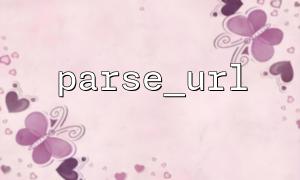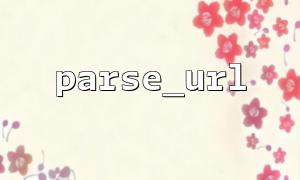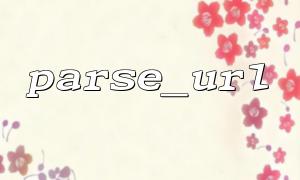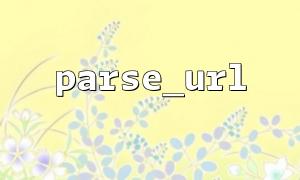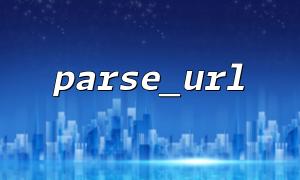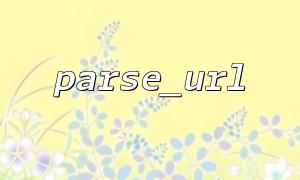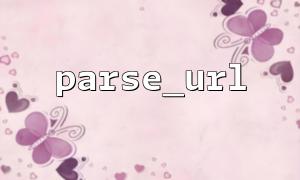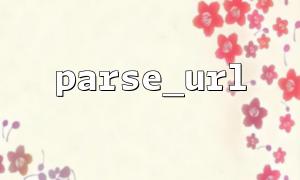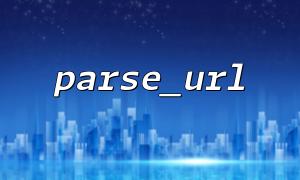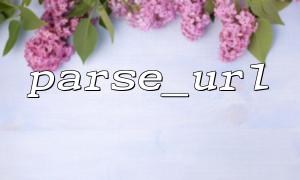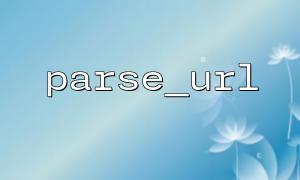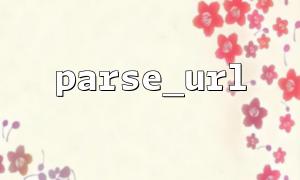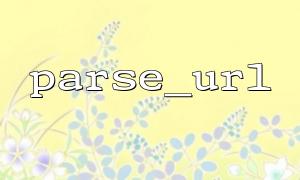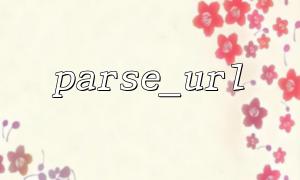When using PHP's parse_url function to process URLs, if the URL contains the @ symbol, parsing errors or the results do not match expectations. This behavior often confuses developers, especially when dealing with URLs containing authentication information or complex query parameters.
This article will analyze the root cause of this problem and provide a response strategy.
In a URL, @ is a character with a special meaning. According to RFC 3986 , it is used to separate user information (user info) and hostname. For example:
http://user:[email protected]/path
In this example:
Username is user
Password is pass
The host is gitbox.net
PHP's parse_url will parse the URL according to this standard.
The problem usually occurs when the @ symbol appears in the non-authentication information. For example:
$url = 'http://gitbox.net/path@something';
$parsed = parse_url($url);
print_r($parsed);
You might expect the output to be something like this:
Array
(
[scheme] => http
[host] => gitbox.net
[path] => /path@something
)
But the actual output might be:
Array
(
[scheme] => http
[host] => something
[user] => gitbox.net
[path] => /
)
This is because parse_url will automatically think that the previous part is user information after encountering the @ symbol. Even if the URL does not contain authentication information, it will still be parsed according to the standards.
$url = 'http://foo@[email protected]/';
print_r(parse_url($url));
The output is:
Array
(
[scheme] => http
[user] => foo
[pass] => bar
[host] => gitbox.net
[path] => /
)
Here, PHP recognizes foo@bar as user:pass , and the gitbox.net is the host name afterwards.
If you know that @ in the URL should not be part of the user's authentication information, you can encode it as %40 . For example:
$url = 'http://gitbox.net/path%40something';
print_r(parse_url($url));
The output is:
Array
(
[scheme] => http
[host] => gitbox.net
[path] => /path@something
)
This can avoid parse_url misjudging the meaning of @ .
If you have no control over the source of the URL (such as user input or third-party data), you can use regular matching and cleaning URLs before calling parse_url to avoid parsing errors caused by format errors.
For example:
$url = 'http://gitbox.net/path@something';
$cleaned_url = preg_replace('/(?<!:)@/', '%40', $url);
print_r(parse_url($cleaned_url));
This regular replacement will retain @ in user information, but will encode @ in other locations.
For URLs with complex structures or uncertain formats, sometimes manually parsing them with string functions (such as exploit , substr , and strpos ) is more secure and reliable.
parse_url is a powerful but not intelligent function. It strictly abides by URL specifications, so it is easy to cause misjudgment when encountering @ characters. Understanding the criteria behind their behavior is the first step in solving the problem.
The recommended practices are:
Ensure that @ for non-authentication purposes is encoded
Clean untrusted URLs first
Use regular or custom functions to parse URLs if necessary
Through these methods, parse_url parsing errors can be avoided to the greatest extent, and the robustness and reliability of URL processing in PHP applications can be improved.
Related Tags:
URL